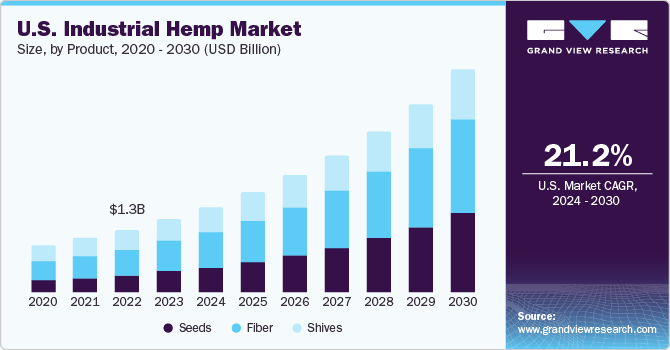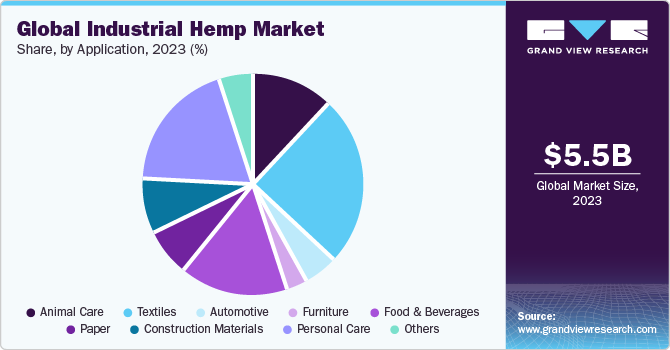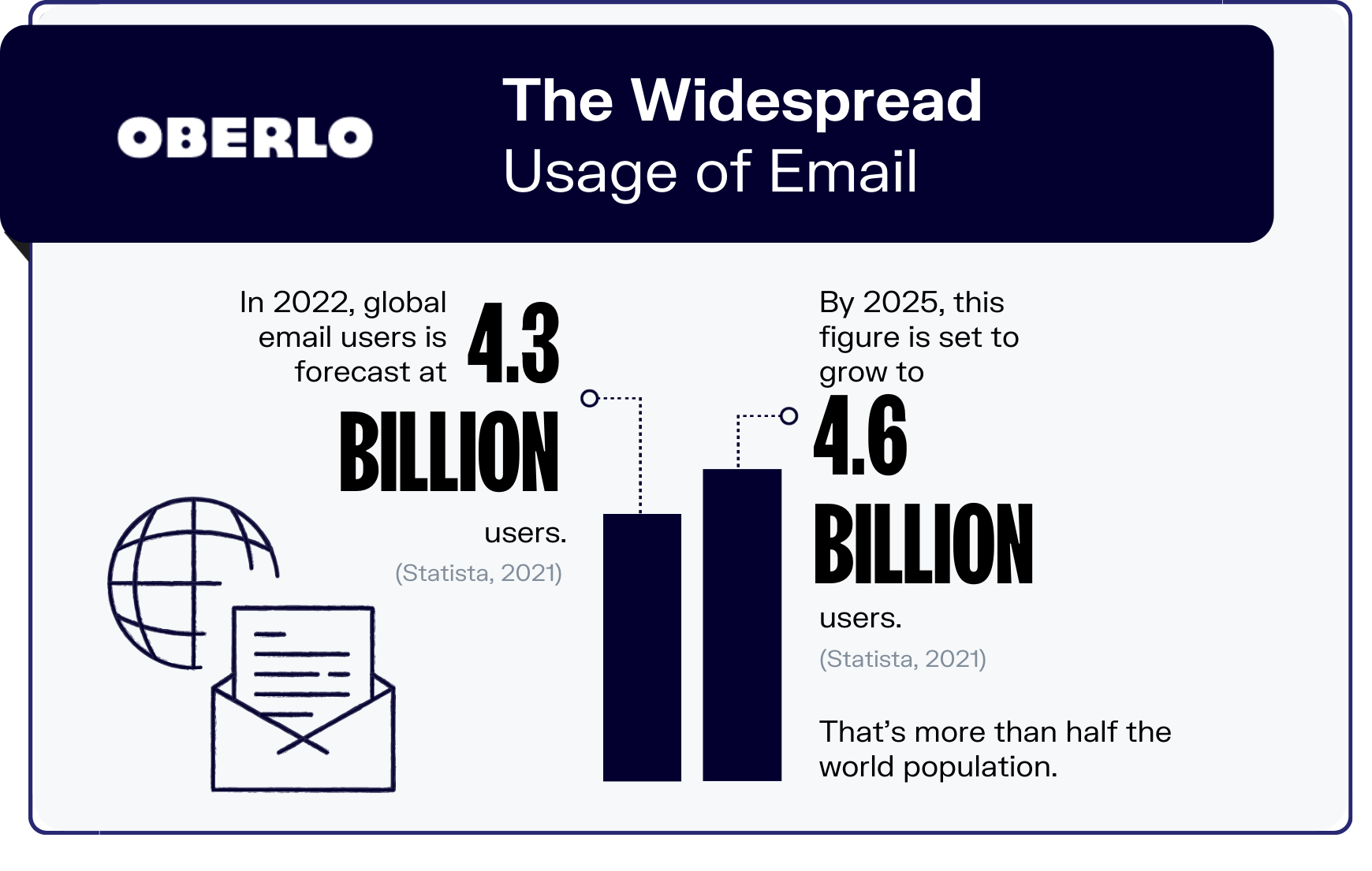The global industrial hemp market hit over $5 billion in 2023. an over 10-fold increase. Strong growth will come from hemp-derived CBD products as consumer acceptance increases and more retail distribution channels carry hemp products. Opportunities also exist on the cultivation side. Hemp farming itself is rising with the demand for quality biomass.

As more states draft legislation for hemp production programs, now could be an ideal time to explore starting a licensed hemp farm. You can sell harvested material to processors extracting CBD oil, produce your own CBD products, or break into niche markets like hempcrete building materials.
This guide will walk you through how to start a hemp farm. Topics include sourcing hemp seeds and equipment, analyzing competing hemp farmers in the area, forming a hemp farm business plan through market research, forming an LLC, obtaining business insurance, and more.
1. Conduct Hemp Farm Market Research
Market research is essential to starting a hemp crop business. It offers insight into the best hemp plants, market saturation for licensed hemp producers, the best methods to grow hemp, and details on your target market.

Some details you’ll learn through hemp seed and farming market research include:
- A key driver of growth comes from the rising demand for hemp-derived CBD.
- Consumer adoption continues rising as CBD becomes more mainstream and trusted for wellness benefits backed by a growing body of research.
- More retail channels now carry CBD too, even pharmacies have added CBD topicals.
- While the lucrative opportunity seems to be in downstream products like CBD oil, opportunities in hemp cultivation and biomass production are expanding too.
That market price, along with yield size, will determine potential hemp farming revenues. Certain variables like genetics, planting density, harvesting timelines, and cultivation environment (outdoor, greenhouse, indoor) impact yields. So maximizing per acre output is vital for profitability.
2. Analyze the Competition
Analyzing the competition is critical for those looking to start a hemp farm business. This includes evaluating nearby brick-and-mortar farms producing similar crops and assessing the online presence of leading farms across your state and the country.

Some methods of getting to know industrial hemp farming competitors include:
- Identifying all operations within a 50-mile radius then use the USDA’s Ag Census data to compare acres in production, total revenues, number of employees, and other attributes.
- Driving by each farm and observe factors like growing/drying/storage facilities and environmental control equipment that impact yields.
- Talking to local wholesale CBD processors and determine which farms supply them currently.
- Evaluating online competition is equally important nowadays.
- Searching for highly rated CBD brands then work backwards to identify their supplying farms.
- Analyzing social media and website content of leading farms to set competitive benchmarks for positioning, photography/videography, content strategy, and more.
- Regularly monitoring competitor posts and SEO rankings to assess website traffic, follower growth, and engagement levels.
See which are rapidly gaining traffic and trace back to inform your inbound marketing and SEO approach. The most successful hemp farms today combine robust online visibility with high-quality cultivation practices. Doing competitive analysis on both fronts will set your future farm up for success.
3. Costs to Start a Hemp Farm Business
Starting a profitable hemp farm requires an extensive upfront investment to secure land, equipment, infrastructure, genetics, and staff. Based on my decades of experience assisting agricultural entrepreneurs. Here is an overview of typical startup and ongoing costs most hemp farmers encounter starting a hemp program.
Start-up Costs
- The first major startup cost is securing adequate acreage of prime farmland conducive to hemp production. Plan on a budget of $2,500 – $7,000 per acre to purchase or long-term lease property.
- Most successful CBD-focused farms start with at least 50 acres which would require around $150,000 upfront even if leasing.
- Essential farm equipment like tractors, tillers, planters, and irrigation systems can run $50,000 or more depending on acreage and level of automation.
- Drying/curing facilities are equally critical; high-capacity modular options run $200,000.
- Factor in another $25,000 for supplies like planting containers, soil amendments, pest control, and fertilizer.
Ongoing Costs
- Ongoing agronomy testing will be necessary too, about $1,000 per field test.
- Access to superior genetics can dictate yields; cloned seedlings from plant nurseries often start around $5 per plant with large farms planting 2,000 plants per acre.
- Licensing fees cost up to $3,000 annually
- Business insurance runs around $5,000 per year, and legal consultation of up to $3,000 initially.
- Simple field employee labor averages $15 per hour.
- Even basic drying barns require cement floors and climate controls representing at least a $50,000 project.
All said the first-year startup costs can easily exceed $500,000 growing hemp professionally. Breaking even may take 2 or 3 growing cycles demanding deep pockets and a long-term perspective.
This business does require higher investment levels than some others in the agriculture space (e.g. orchards or greenhouses) and takes longer to start raking in some profits, but in the long term, it can be incredibly profitable.
4. Form a Legal Business Entity
When starting a hemp farm, choosing the right business structure is critical – this decision impacts taxes, legal liability, raising capital, and more. Here’s an overview of the pros and cons of each entity, a hemp farmer might consider before investing in commercial production:
Sole Proprietorship
A sole proprietorship is the simplest as it constitutes a single individual running the business without any legal separation between personal and business assets. However, the owner assumes unlimited liability – meaning creditors can seize personal assets like their home if the business fails. Also, sole proprietors pay higher self-employment taxes.
Partnership
Partnerships allow multiple owners to jointly operate the business but each partner assumes full liability for debts and lawsuits against the company. Partners must pay self-employment tax on their proportionate share of income which can be substantial in good years. Adding or removing partners also proves more complex.
Corporation
A corporation offers liability protection as shareholders are only financially responsible for their equity investment. But “C corps” face double taxation of both corporate income and dividends. Complex annual reporting is required and corporations can be more costly to establish and administer. Raising equity financing may be easier, however.
Limited Liability Company (LLC)
For most hemp farms, a limited liability company (LLC) is best. LLCs provide legal and tax flexibility along with liability protection similar to a corporation. Profits pass through to members avoiding double taxation and annual paperwork is minimal. Expanding ownership via adding members is simpler than with partnerships and personal assets are generally shielded.
5. Register Your Business For Taxes
Before selling any products or hiring employees, every hemp farm must obtain an Employer Identification Number (EIN) from the IRS, even if operating as a sole proprietor. An EIN serves as your business’s tax ID number for federal tax purposes.
Unlike your Social Security Number which connects to your tax returns, an EIN uniquely identifies your business’s tax obligations. It also enables opening a bank account, applying for licenses and permits, and hiring workers.
The EIN application only takes minutes on the official IRS website. Simply select “View Additional Types, Including Tax-Exempt and Government Organizations” then choose “Agricultural” as the type of business. Provide basic information like name, address, and ownership structure along with Social Security numbers of owners with more than 25% control.
After submitting online, your EIN will display immediately. The IRS does not charge any fees for obtaining or renewing an EIN. Just be sure to print the assignment confirmation letter for your records.
Additionally, visit your state government’s website to register for sales tax collection, as retail sales of hemp products would require paying state sales tax. The Small Business Administration’s website outlines state-level licensing in detail. Following proper registration procedures from the start will ensure full legal compliance.
6. Setup Your Accounting
Proper financial record keeping and accounting are critical when starting a hemp farm to accurately track expenses, manage cash flow, and remain IRS audit-ready. There are many options for business accounting, let’s walk through a few of them.
Accounting Software
Platforms like QuickBooks seamlessly integrate with bank/credit card accounts to import and categorize transactions, generate invoices, send payment reminders, and more. This eliminates manual entry and reduces human error risk. Customized reporting provides real-time visibility into income, expenses, account reconciliation, and taxes owed.
Hire an Accountant
While the software does the heavy lifting on categorization and reporting, hiring an accountant is still recommended. Expect fees of $100-150 per month for bookkeeping services like payroll, accounts receivable/payable, fixed asset tracking, and inventory management. Reconciling bank and credit accounts also ensure transactions are properly coded.
Open a Business Bank Account
Separate personal and business finances are essential for hemp farmers. Open a dedicated small business checking account and apply for a basic credit card. Provide your EIN, company financial statements, and ownership documentation when applying online. This establishes a business credit history independent of your SSN and personal profile.
7. Obtain Licenses and Permits
Operating a compliant hemp farm is critical. You’ll need a hemp production license and other permits to avoid penalties and maintain eligibility for federal crop insurance and disaster relief. Find federal license information through the U.S. Small Business Administration. The SBA also offers a local search tool for state and city requirements.
At a minimum, you must apply for a U.S. Domestic Hemp Production Program through your state’s Department of Agriculture. This requires submitting a site registration application outlining the legal description, geospatial location details, and acreage dedicated to hemp cultivation along with license fees often exceeding $1,000.
Common secondary permits and licenses include obtaining an agricultural or greenhouse building permit for any new drying/storage structures, applying for a commercial feed, pet food, or fertilizer production license if selling hemp byproducts or oil and completing state-specific food safety certifications.
Documentation should be readily available on-site for inspection at all times. Any transport of plant materials or biomass over state lines requires accompanying manifests and THC potency certificates. Insurance brokers specializing in crop and agriculture businesses can also advise tailored coverage for potential risks.
8. Get Business Insurance
Operating an uninsured hemp farm exposes the business to massive financial perils, even existential threats, should an unforeseen catastrophe unfold. Insurance protects equipment investments and safeguards your livelihood.
Imagine a fire sparked by malfunctioning electrical wiring destroys your drying/storage facility along with 50% of inventory and processing machines. Or an infestation of spider mites damages 30 acres of crops days before harvest.
In both scenarios lacking insurance, you single-handedly bear the full cost of repairs, lost product, and operational disruption. For small farms, this could necessitate expensive loans, bankruptcy, or closing entirely.
Alternatively, comprehensive business insurance policies cover expenses related to property damage, inventory losses, equipment replacement, cleaning, and more from accidents, natural disasters, disease, theft, or vandalism. Common options recommended for hemp producers include:
- Crop insurance protecting against weather, pests, and low yields
- Commercial property coverage for buildings, machinery, and inventory
- General liability insurance covering bodily harm and associated legal claims
Work with an independent insurance agent familiar with hemp to access specialty providers and optimize coverage. Be prepared to provide details on operations, compliance documentation, inventory value projections, and risk management protocols on facilities. Premiums vary based on history, revenue, and exact perils covered but expect annual costs exceeding $10,000.
Business insurance is a crucial aspect of any floral business or one that involves plants of any kind due to weather volatility and overall protection coverage.
9. Create an Office Space
Operating a hemp farm requires dedicated office space to run the “business behind the business”, areas like sales, marketing, accounting, compliance, inventory, and order management. While much time is rightly spent outdoors cultivating, having an administrative home base enables professionalism and scale.
Home Office
A basic home office can provide cost savings and convenience for sole proprietors. Expect $2,000-5,000 to dedicate a room including a desk, file storage, computer, phone system, and supplies. Meetings with partners may prove trickier but remote collaboration tools help. Ensure proper permitting/zoning allowance for commercial activity at a residence.
Coworking Office
Coworking spaces like WeWork offer more flexibility to rent temporary offices, meeting rooms, and desks for $300-800 monthly depending on location and access needs. This allows meeting clients yet enables getting back to the fields quickly. However, privacy could be limited among other companies and storage access may necessitate upgrades.
Commercial Office
Long-term, leasing Class B/C generic office space in business parks or stand-alone buildings nearby offers the most professional setup while averaging $15-30 per square foot annually. Expect 1,000-3,000 square feet to be sufficient including private offices, conference capabilities, and kitchenette, with room for safe product storage. Having a more complete facility positions better for company growth too.
10. Source Your Equipment
Launching a hemp farm requires extensive equipment like tractors, soil amendments, irrigation systems, storage containers, and more. While buying new enables customization, significant cost savings can come from used purchases, rentals, or leases. Here are the top sources to acquire essential materials:
Buy New
Purchasing new gives you warranty protections and confidence in full working order but tends to be the costliest. Specialized platforms like Farm Equipment USA along with dealerships offer the latest cultivators, dryers, and harvesting technology. Expect to pay 10-40% above used pricing but some new equipment financing can ease costs long-term if expanding rapidly.
Buy Used
Buying used equipment through auctions and classifieds often delivers major discounts, sometimes 50% or more. Farmers routinely upgrade machinery so functional, quality used inventory abounds. Check sites like TractorHouse for local availability. And don’t overlook Facebook Marketplace, Craigslist, and eBay for smaller accessories and tools.
Lease
Leasing major gear through dealers and finance providers also spreads payments over 3-5 years. This preserves capital for other startup costs. Some leases enable buying equipment at fair market value afterward – essentially a rent-to-own approach. Compare all options but buying well-maintained used goods is often optimal for most.
11. Establish Your Brand Assets
Establishing a professional brand builds credibility and earns customer trust in an increasingly competitive hemp marketplace. This requires strategic decisions on logo design, websites, signage, and other visual assets that cohesively express your farm’s identity and quality promise.
Get a Business Phone Number
An official business phone line like RingCentral also enables projecting legitimacy and providing responsive support. Toll-free numbers and advanced call routing to cell phones keep you connected in the field.
Design a Logo
Your logo merits thoughtful consideration as a recognizable farm emblem. While classic fonts and imagery like wheat graphics seem intuitive, more modern, minimalist crop-focused concepts could differentiate. Sketch ideas then create digital mockups at sites like Looka to finalize an iconic brand mark.
Print Business Cards
From logo files, order glossy business cards and aluminum signs for your office, storefront, or billboards through convenient online print shops like Vistaprint. These visual impressions build awareness and reputability with every client touchpoint.
Buy a Domain Name
Secure a branded domain name aligning with your farm identity. Check availability by searching sites like Namecheap before someone else claims your company’s ideal web address.
Design a Website
Building a custom responsive website to share your story, capabilities, products, and contact options is equally important. User-friendly site builders like Wix offer templates for showcasing farm imagery, blogging on topics like organic practices, and driving online orders. Or hire a freelancer from Fiverr if wanting advanced eCommerce.
12. Join Associations and Groups
While hemp farming requires extensive physical labor and agronomy expertise, connecting with fellow local growers and industry associations can provide invaluable mentoring, technical knowledge, and future partnership opportunities.
Local Associations
The California Hemp Association, Colorado Hemp Association, and state-level groups like them offer research on optimal seed varieties for local climates, updates on changing regulations, and collective lobbying for favorable farming policies. Tapping their expertise and being visible within the community sets you up for success.
Local Meetups
Sites like Meetup also enable finding hemp-focused networking events, conferences, and trade shows nationwide to exchange insights with peers and industry experts through panels, workshops, and mixers both virtual and in-person.
Facebook Groups
And don’t underestimate the power of niche social media communities relevant to hemp producers like the Hemp Farmers Co-Op and Hemp And Cannabis investors group on Facebook. Fellow growers frequently discuss solutions to crop threats, drying techniques, harvest/processing/storage best practices, and more within the groups.
13. How to Market a Hemp Farm Business
Distinguishing your hemp farm amid mounting competition requires thoughtful digital and traditional marketing outreach to drive customer acquisition and retention. While leveraging your network is the most affordable initial tactic, implementing ongoing paid advertising and referral incentives will prove essential to viable growth.

Referral Marketing
Satisfied buyers who organically endorse your operation after pleasant purchasing experiences can influence friends and other farmers more than any ad. Offer modest discounts for referrals that result in new sales – this mobilizes your first customers to become brand advocates.
Digital Marketing
- Run Google and Facebook ads geotargeting local searchers and those interested in hemp or CBD based on browsing habits
- Launch a YouTube channel documenting your cultivation techniques, farm history, and product offerings to build visibility
- Blog regularly about topics like hemp oil extraction methods, soil management, seed genetics, pest control, and other educational themes to attract visitors
- Foster reviews on Google Business Profile and platforms like Trustpilot to reinforce your reputation
- Engage audiences by sharing seasonal farm imagery on Instagram
- Enable email signups on your website to distribute harvest updates, specials, and other newsletters
Traditional Marketing
- Attending farmer’s markets and industry trade shows to sample products and connect personally
- Distributing flyers and brochures to health food stores and dispensaries selling hemp products
- Running radio spots on local stations aligning with your target rural demographic
- Sponsoring local events to gain brand exposure and goodwill
14. Focus on the Customer
Providing an incredible customer service experience is pivotal for hemp farms to drive referrals and repeat purchases in this burgeoning industry. With so many new brands and products flooding the CBD market, standing out through exceptional service (or faltering here) can dictate your company’s long-term viability.
Consumers today hold high expectations, fast inquiry response times, transparent ordering and shipping confirmations, proactive harvest/production updates, and lightning-fast issue resolution if any defects arise.
Farmers must internalize that they are not just selling hemp material, but an entire experience stretching from initial website discovery through to product delivery and beyond. Service touches encompass your email writing style, phone etiquette, shipment packaging, and post-purchase follow-up practices.
Brands that nail the customer journey at every step earn immense goodwill and word-of-mouth marketing. Enthusiastic buyer reviews, referrals to other grocers/processors, and repeat large bulk purchases are the fruits of getting service right.
In contrast, an impatient email response, unwillingness to customize an order, layers of phone menus, or refusal to address a legitimate quality complaint can immediately lose you a longtime advocate. Guard your reputation fiercely through service excellence. This earns the customer loyalty that is any farmer’s most valuable asset.
